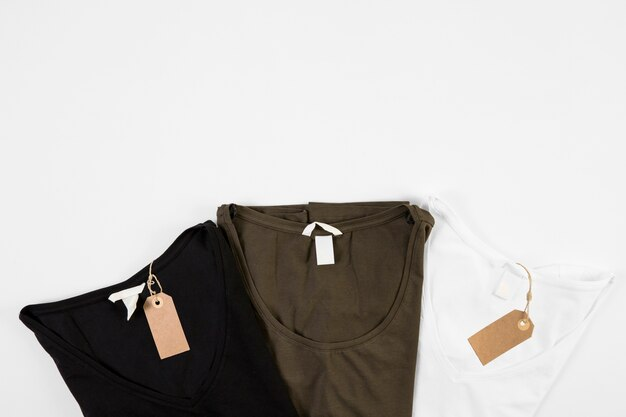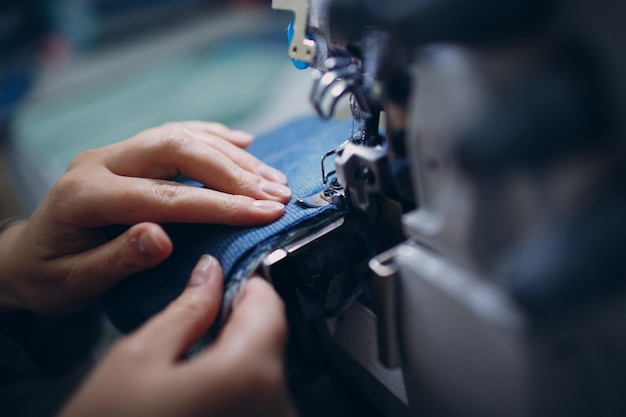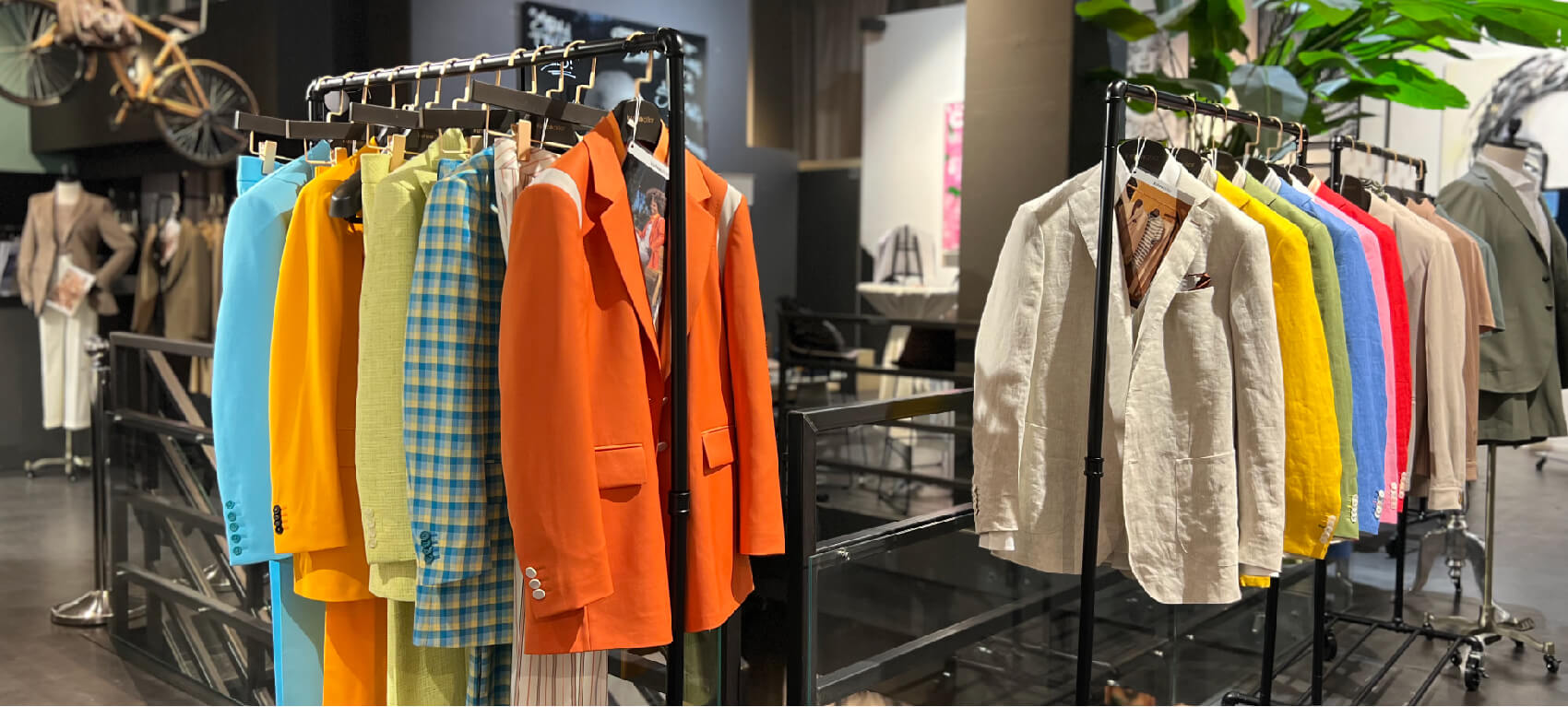
In the fast-paced fashion landscape of today, private label fashion is now a powerful means for entrepreneurs, retailers, and international brands. In a world where online portals for shopping are gaining popularity and consumers are demanding unique, branded apparel, private labeling offers a way to create unique products without the hefty investment of creating your own manufacturing plant. Whether you are a startup entrepreneur who wants to create a signature clothing line or an established retailer looking to diversify your product line, this article has you covered.
Private label clothing is a partnership with manufacturers to produce clothes bearing your name, giving you design, quality, and marketing control. Forward to 2025, this concept is becoming more mainstream, mixing affordability with creative freedom. Here in the ultimate guide, we will be covering what private label clothing is, how it is done, its pros and cons, and step-by-step guide to creating your own line.
Private label clothing consists of apparel that one company produces—usually the third-party maker—and sells branded with another's name. To give an example, a manufacturing factory can produce t-shirts to be sold as a store's private line by it. This setup, more popularly known as original equipment manufacturing (OEM), allows businesses to capitalize on the expertise of a manufacturer without compromising their uniqueness. Starting from design and production to packaging and shipping, manufacturers offer several services, which enable retailers to focus on selling and branding.
While private label is common in fashion, it's also common in other sectors like coffee, electronics, and personal care. In fashion, it's all about creating fabrics, styles, and fits to suit a brand's vision—such as custom formal wear designed for upscale markets. Unlike commodity merchandise, private label fashion is created to specific retailer specifications, so it stands out in an oversaturated market.
The appeal of private label clothing in 2025 is how easy it is for e-commerce business owners and small businesses. Websites that make selling simpler and new businesses typically not have the funds to create factory buildings, teaming up with manufacturers who already have established facilities is an easy solution. It's something that reconciles expense with making high-quality, branded clothing accessible to a global marketplace.

Private label clothing operates through an alliance of two key players: manufacturers and retailers. Manufacturers take up most of the work—designing, producing, and even packaging garments based on the requirements of the retailer. Retailers then buy these items, brand them with their logo and name, and distribute them to the consumer. This can include pattern-making and sampling to mass production, allowing brands to respond fast to fashion moves—like producing custom Smart Casual lines that blend style and versatility.
While commonly misunderstood, private label and white label apparel are actually quite different. Private label products are specially designed for one specific retailer, maintaining exclusivity—such as an exclusive clothing line sold by a single brand. White label products, on the other hand, are generic merchandise mass-produced by a manufacturer and resold to several retailers, who apply their own labels. Private labeling gives more control and distinction, while white labeling emphasizes price and quantity. Both have pros (e.g., customization vs. cost) and cons (e.g., more costly vs. less distinction), depending on your business goals.
Private label clothing offers a plethora of benefits to businesses of all sizes. Here is a detailed look at why it's a good idea:
1. Cost-Effective: Outsourcing manufacturing saves you the expense of owning a factory—equipment, personnel, and maintenance. Bulk order discounts reduce per-unit costs further, enabling you to invest more in marketing or design.
2. Control Over Product Design: You dictate every detail—fabrics, styles, and finishes—and create one-of-a-kind clothes that differentiate your brand and command your brand message, such as custom woman's wear tailored to specific audiences.
3. Branding and Marketing Freedom: Market under your brand and design campaigns that resonate with your customers and build loyalty and recognition.
4. Speed to Market: Manufacturers enable rapid production in bulk, allowing you to bank on trends while they are at the peak, before they dip in the frenetic fashion era.
5. Customization Flexibility: Alter designs, sizes, or colors based on customer feedback or shifts in the market, keeping your line fresh.
6. High Profit Margins: Set your own prices and enjoy greater profits, especially if your brand is highly consumer-friendly.
7. Improved Quality Control: Take control of production to guarantee each piece meets your standards, using master techniques for longevity and quality.
8. Enhanced Customer Service: Build close relationships with manufacturers for quick resolution of problems, improving the customer experience.
9. Competitive Edge: Distinguish yourself from the competition with unique offerings, solidifying your market position.
10. Increased Sales: Special products draw in purchasers, and increased prices increase revenue while establishing brand loyalty.
11. Increased Efficiency: Concentrate on sales instead of production logistics, with streamlined inventory guaranteeing stock equals demand.
12. Ability to Scale: Grow production as your company expands without the need to invest in new facilities, making growth affordable.
13. Unique Value Proposition: Create signature products that define your brand, either premium designs or value-based ranges.
14. Adaptability: Change quickly to respond to low sales or poor feedback, unlike larger brands stuck in static processes.

Despite its strengths, private label clothing has potential downsides:
· Dependence on Third-Party Manufacturers: Unpredictable lead times or unacceptable quality can devastate inventory and hurt your brand.
· Less Flexibility for Innovation: Some manufacturers limit customization, restricting your ability to push creative boundaries.
· Brand-Building Effort: It takes effort and capital to establish trust and credibility from a blank slate.
While these are risks, an excellent manufacturer partnership can mitigate all but the rarest risks.
Finding the right partner is critical. Focus on these areas:
· Quality: Look for consistent high standards in stitching, fabric, and craftsmanship.
· Reliability: Ensure timely delivery and clear communication to avoid delays.
· Production Capacity: Confirm they can handle your current and future order sizes with flexibility.
· Experience: Choose manufacturers with a solid industry reputation and specialization in apparel.
Follow these steps to select a manufacturer:
1. Research Market and Needs: Conduct research on trends, your target market's tastes, and your competitors' strengths and weaknesses. Create a list of your needs—budget, designs, and fabrics.
2. Find Manufacturers: Use platforms like Alibaba or ThomasNet, attend trade shows, or search Google with terms like “private label clothing manufacturer.”
3. Evaluate Manufacturers: Check certifications (e.g., ISO), production processes, and lead times. Compare pricing and minimum order quantities (MOQs).
4. Request Samples: Order samples to test materials, fit, and quality, comparing multiple options.
5. Negotiate Terms: Negotiate price, schedules, and quality levels. Put agreements in writing in a contract, including intellectual property and dispute resolution.

Launching a private label apparel line requires market research, designing your garments, choosing materials, creating samples, and rolling out your brand. It's a combination of creativity and strategy, from crafting your vision to expanding your business. For an in-depth step-by-step guide, read our exclusive blog post How to Start a Successful Clothing Brand in 2025: A Step-by-Step Guide from concept development to distribution. Platforms offering made to measure clothes online can also streamline this process, allowing precise customization and efficient production.
Private label clothing in 2025 is not a business strategy—it's the formula for controlling your brand, building profits, and reacting to consumers' needs at lightning speed. From defining your vision to partnering with a reputable manufacturer and rolling out a hit line, this guidebook has walked you step by step through it all. If you seek cost savings, design flexibility, or a competitive edge, private labeling offers tailor-made solutions to retailers everywhere. Ready to propel your fashion business to new heights? Take action.
It's when a maker produces goods for another company to brand and market, apart from white labeling.
No, private labeling involves co-creation of specially designed products, unlike simply rebranding bought items.
No, quality varies—some brands prioritize premium craftsmanship, others focus on affordability.
It offers unique products, cost savings, and potential customer loyalty.